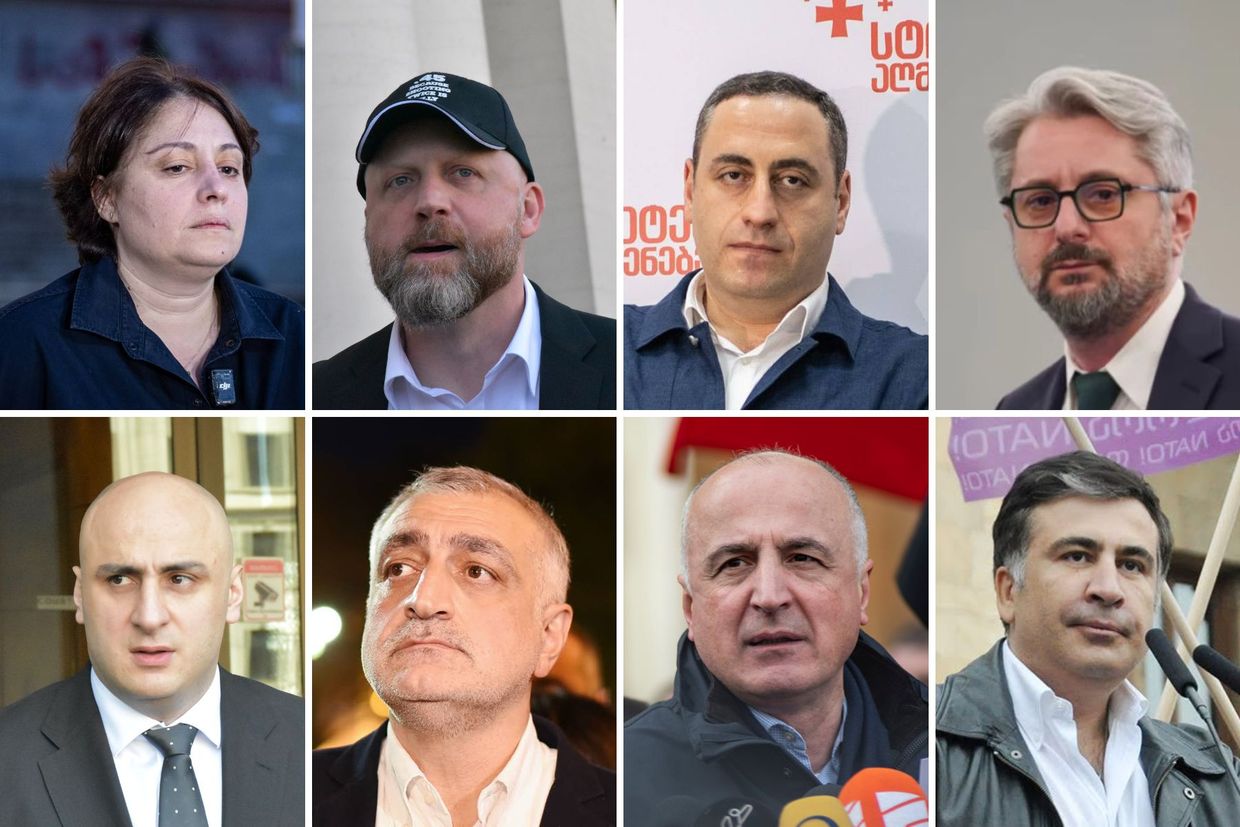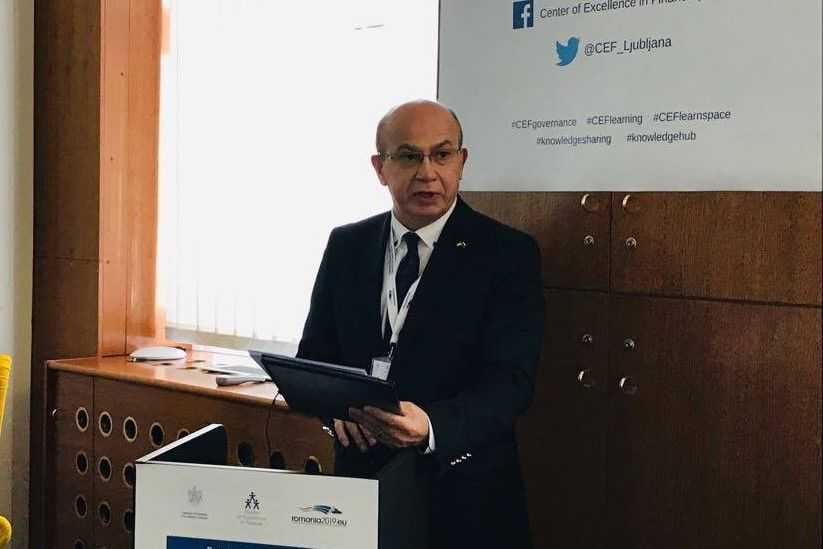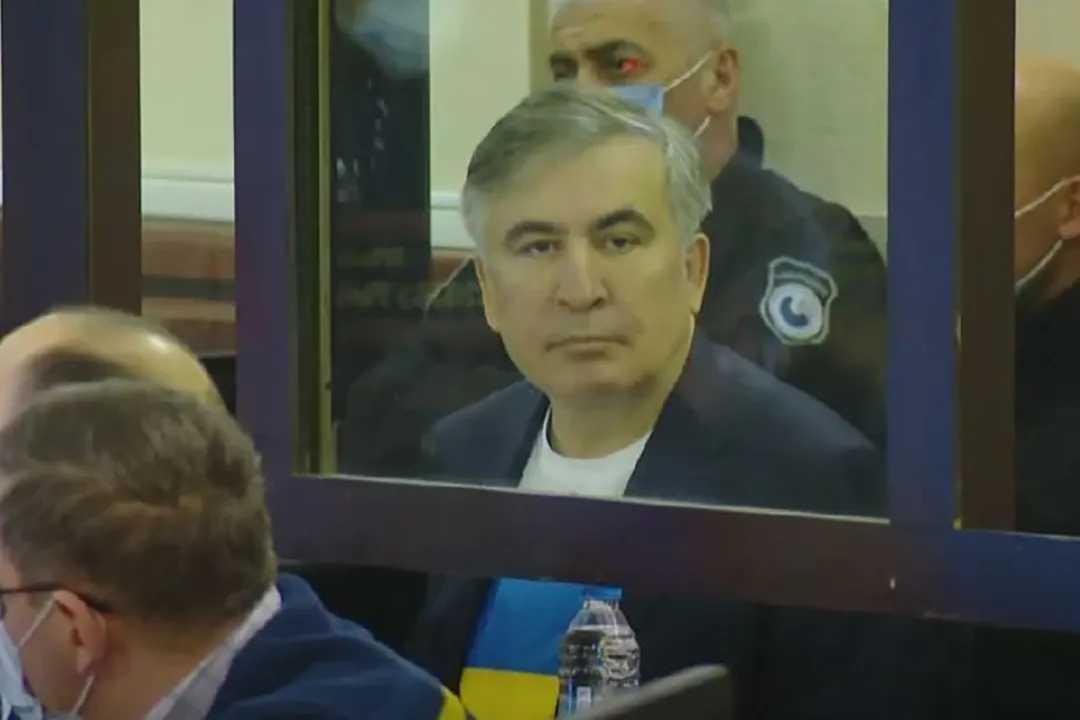
Georgia’s imprisoned ex-president Mikheil Saakashvili has appealed to Ukrainian President Volodymyr Zelenskyi to include him — as the former chair of the Odesa Regional State Administration — in the list of civilian prisoners of Russia’s full-scale invasion of Ukraine ‘with the corresponding legal consequences’.
Saakashvili was transferred from Tbilisi’s Vivamedi clinic back to prison on Wednesday evening after more than three years there following a hunger strike.
In his subsequent Facebook appeal on Thursday, written in Ukrainian, Saakashvili first expressed his ‘admiration for the heroic struggle of the Ukrainian nation, of which I am honoured to be a part as a proud citizen of Ukraine’, as well as his ‘deep gratitude’ to Zelenskyi personally for his ‘phenomenal leadership during this most difficult time’.
Though he noted he tried ‘not to bother’ Zelenskyi, due to his more pressing work, he was now ‘forced to appeal’.
‘Yesterday, I was transferred from the prison hospital, where I was being treated for severe poisoning, back to the prison — to the staff who poisoned me’, Saakashvili claimed.
‘My poisoning in March 2022 occurred shortly after the start of a full-scale war. The fact of poisoning was established by American and German laboratories. Putin demanded my massacre from the very beginning, and [former Russian President Dimitry] Medvedev and [Russian Foreign Minister Sergei] Lavrov repeatedly boasted about my imprisonment’, he continued.
Saakashvili went on to discuss how in the new criminal case recently opened against him — along with other opposition leaders — one of the main charges has been ‘sabotage in favour of a foreign enemy state’.

‘The materials of this case contain your statements, as well as the statements of [presidential advisor] Mykhailo Podolyak. That is, the illegal Georgian authorities directly declare Ukraine a foreign enemy state’, Saakashvili highlighted.
‘And this is not surprising, because from the very beginning of this great war, the Russian oligarch [Georgian Dream founder Bidzina] Ivanishvili and his minions openly sided with Russia’.
‘In this context, it is absolutely clear that my persecution and my fate are connected with the war’, Saakashvili emphasised.
Based on this, he requested Zelenskyi to ‘please include me, as the former chair of the Odesa Regional State Administration, as the chair of the Executive Committee of the National Council of Reforms, who is illegally held by the pro-Russian regime of Georgia, in the list of civilian prisoners of this war with the corresponding legal consequences’.
‘I know that Ukrainians will not abandon their own, and I am counting on you’, Saakashvili concluded.
In his Facebook post, he included photos of both Zelenskyi and himself.
Relations between Ukraine and Georgia have been strained since Russia launched its full-scale invasion of Ukraine in February 2022.
In 2023, Zelenskyi summoned the Georgian Ambassador over Ukraine’s demands that Saakashvili be handed over to Ukrainian authorities.

Saakashvili’s tumultuous post-presidency
Saakashvili, one of the leaders of the 2003 Rose Revolution that overthrew then-President Eduard Shevardnadze following rigged parliamentary elections, was elected president in 2004 with an overwhelming majority through popular vote.
He remained in office throughout a tumultuous period of Georgian history, including the August 2008 War.
In the 2012 elections, Saakashvili and his UNM party were defeated by the Georgian Dream coalition, ending the party’s nine-year rule. The following year, Saakashvili’s presidential term also came to an end and he left the country soon after.
In February 2015, then-President of Ukraine Petro Poroshenko appointed Saakashvili head of the International Advisory Council on Reforms — two months later, he was appointed governor of the Odesa region. Around the same time, Saakashvili received Ukrainian citizenship, which later led to his Georgian citizenship being stripped due to restrictions regarding dual nationality in Georgian legislation.
After resigning from his position, citing corruption in Ukraine as the main reason behind the decision, Saakashvili attempted to found a new political party called Movement of New Forces.
In July 2017, Poroshenko stripped Saakashvili of his Ukrainian citizenship — a possible reason for this was that under Ukrainian law, only citizens can lead political parties or be elected to parliament. Following this, Saakashvili faced numerous legal difficulties from the Ukrainian authorities, including being accused of crossing the state border illegally and attempting to overthrow Ukraine's constitutional system.
Things appeared to turn around when Zelenskyi was elected president of Ukraine in 2019, following which he reinstated Saakashvili’s Ukrainian citizenship. The following year, he was appointed head of the executive committee of the National Reform Council.
Meanwhile, in Georgia, Saakashvili had been charged with multiple crimes in absentia — upon his secret return to Georgia in October 2021, he was detained. Since then, he has several times gone on hunger strike leading to his transfer to the hospital in Tbilisi, where he stayed until Wednesday.
One of the charges against him was illegal border crossing during his return, for which Saakashvili was convicted in March 2025. Combined with his previous sentences, his prison sentence is now extended to at least 2032.











